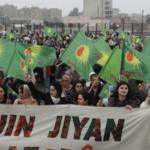
The hottest part of the year is not the ideal time to travel to Northeast Syria, a region whose local government is the Democratic Autonomous Administration of North and East Syria (DAANES). But I traveled there this past August, prepared for the soaring temperatures and the unrelenting sun. I spoke with a wide variety of officials and residents about the new realities in Syria. I also viewed with my own eyes the systems that people are living under, and the drumbeat of everyday life. After fifteen years of war, hostilities, and resource shortages, following decades of neglect by the regime of Bashar al-Assad, you would think that the region would be totally devastated.

At the 2nd Mesopotamia Water Forum held in Amed, participants developed proposals addressing the obstruction of access to water, ecological destruction, and the protection of water resources.
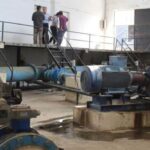
Syrian Deputy Minister of Energy for Water Resources Affairs, Osama Abu Zeid, met on Tuesday with delegations from the International Committee of the Red Cross (ICRC) and UNICEF to discuss strengthening cooperation in the water sector in Hasakah Governorate, northeastern Syria, with a focus on rehabilitating the vital Alouk water station.
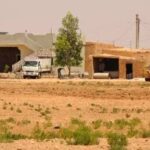
The water shortage in villages around Mount Kizwan negatively affects women. Despite the water shortage, women find ways to make their villages green.

“Green spaces play an effective and positive role in climate change. Our aim is to create a clean and healthy environment,” said Meha Mihemed, Co-chair of the Ecology Department of the People’s Municipality in Til Temir.
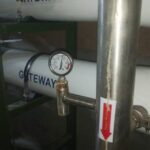
HASAKAH, Syria (North Press) – A director of a private water desalination station in Hasakah Governorate in northeastern Syria said on Wednesday that an urgent need for potable water prompted him to start the project a week ago. The station’s primary mission is to desalinate and purify water, which is then stored in tanks and
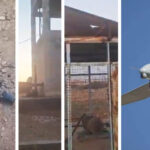
The Turkish military carried out an airstrike against a water pumping station in the countryside of Qamishli (Qamişlo), northern Syria. The airstrike is reported to have put the facility out of order and cut water access to thousands of residents.
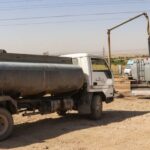
Water levels of the wells in Hasakah Governorate in Northeast Syria have decreased as a result of the recent heat wave, an official of the Autonomous Administration of North and East Syria (AANES) said on Tuesday.
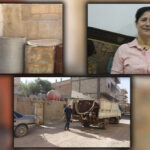
The Turkish state has been stopping the Alouk water station from pumping drinking water. The Autonomous Administration of North and East Syria (AANES) has developed a project aiming at solving the ongoing water outages affecting 1.5 million people.
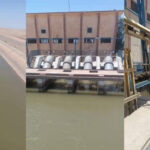
The Democratic Autonomous Administration institutions started to operate stations that would pump water from the Euphrates River to reach the city of Hesekê in less than 48 hours.
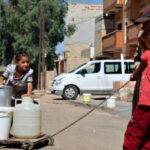
The Turkish state continues to cut off the water supply to Alouk Station in Hesekê. The Autonomous Administration, on the other hand, is making great efforts to provide water for the people.

In the face of an array of ecological challenges, a range of actors in NES have been working to cultivate an “environmentally minded population”. RIC spoke with Berivan Omer, a member of Jazira region’s leadership board and the women’s ecology platform, Ziwer Shexo, a volunteer for Keziyen Kesk (‘Green Braids’), a popular environmental initiative, and












